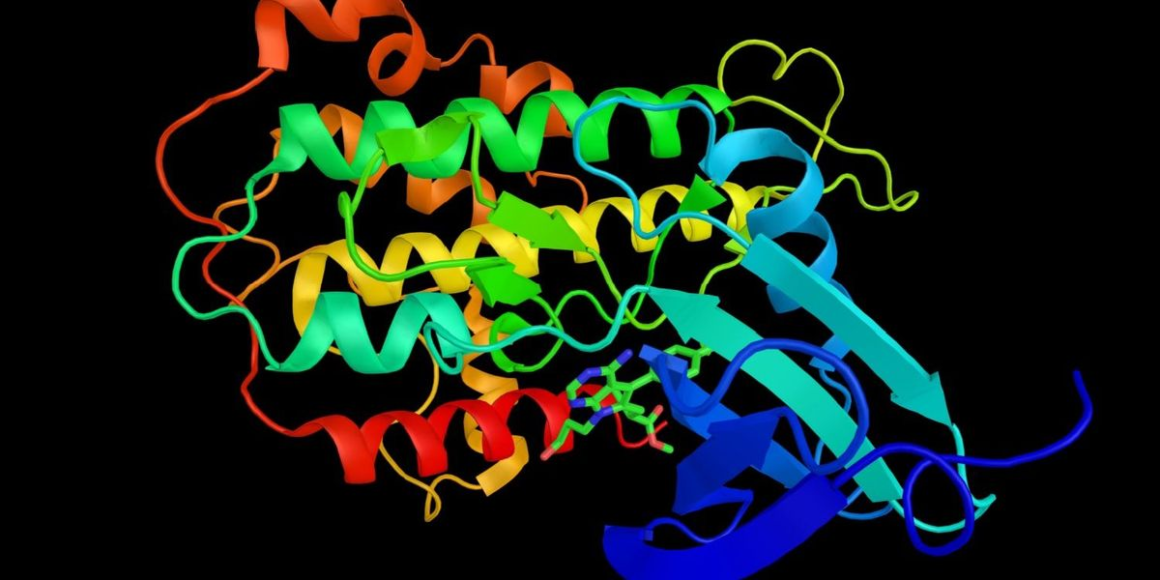In a remarkable convergence of biology and artificial intelligence (AI), AlphaFold has emerged as a game-changer in the quest to understand the building blocks of life.
Here, the Investing News Network takes a deep dive into what AlphaFold is, how AlphaFold works, the history of DeepMind and the exciting investment opportunities emerging from this cutting-edge technology.
AlphaFold is an AI program that can predict protein structures by analyzing massive databases of known protein shapes and their corresponding amino acid sequences. It was trained and developed on Google’s supercomputers.
AlphaFold 2, the second iteration of the program, is accessible via its open-source code and a public database of protein structure predictions, enabling researchers to access pre-computed structures. Researchers can also download the program and run their own experiments.
DeepMind released AlphaFold 3 in May 2024 with limited access, with some capabilities accessible through the AlphaFold Server. Full access to the model is expected eventually, but no release date has been set.
DeepMind was launched in London in 2010. Demis Hassabis, a British computational neuroscientist, was a co-founder of DeepMind, alongside Shane Legg, a machine learning researcher, and Mustafa Suleyman, an AI entrepreneur who left the company in 2019.
The same year, DeepMind began developing AI systems that would be able to solve the “protein folding problem,” a long-standing goal in scientific research.
In 2017, computer scientist John Jumper joined DeepMind as a research scientist who led the development of AlphaFold. Jumper’s background in computational biology made him uniquely qualified to apply machine learning to the complexities of protein folding.
The culmination of DeepMind’s effort came on October 2, 2024, when Hassabis and Jumper were awarded the Nobel Prize in Chemistry for their work on AlphaFold, cementing the program’s status as a transformative tool in the scientific community.
AlphaFold uses machine learning to predict the 3D structure of a protein based on its sequence of amino acids, which are like a list of ingredients that make up the protein’s chemical composition.
A protein’s amino acid sequence determines its unique shape through a process called protein folding. In turn, a protein’s shape determines its function.
When a protein folds incorrectly, it can stop functioning properly or become toxic. Protein misfolding is believed to cause neurodegenerative diseases such as Alzheimer’s disease and Huntington’s disease, prion diseases, as well as type II diabetes, cystic fibrosis, cataracts and certain types of cancers.
By knowing the shape of a protein, researchers can identify biomarkers for certain diseases and study how each protein interacts with other molecules, enabling them to design drugs that will bind to a target.
Before AlphaFold, biology researchers had been trying to identify the 3D shape of proteins for decades, using a number of expensive and time-consuming experiments and computations that struggled to achieve high accuracy.
Advances in genomics, such as the discovery of thousands of new genes through the Genome Project, further complicated things; each time a new gene was identified, it implied the existence of a previously unknown corresponding protein, so the number of proteins needing identification kept growing.
Once a sequence is input into AlphaFold, it combs through its database of all 200 million known protein structures to find one with a similar structure. AlphaFold’s neural network is trained on the rules of protein folding and how different amino acids interact with each other, which is a massive amount of data. Based on this information, AlphaFold makes several predictions as to the protein’s 3D structure, then refines its prediction until it finds the single most likely structure.
In 2018, DeepMind entered AlphaFold into the 13th Critical Assessment of Structure Prediction (CASP) competition, a biannual experiment founded in 1994. AlphaFold won the event, accurately predicting 25 out of 43 proteins. The team that came in second place only predicted three out of 43.
While the first AlphaFold model was a remarkable achievement, it still had limitations. The second model, AlphaFold2, was trained on a much larger and more diverse data set. At the CASP14 competition in 2020, AlphaFold 2 demonstrated remarkable accuracy, achieving a score of 92.4 out of 100 to win the contest for a second time.
As private companies, DeepMind and Isomorphic Labs offer limited access to public investors, but there are still ways to benefit from their success.
DeepMind is a wholly owned private subsidiary of Google’s Alphabet, meaning investing in Alphabet provides an indirect way to gain exposure to DeepMind and AlphaFold’s potential.
Similarly, investing in pharmaceutical companies that utilize AlphaFold for drug discovery can offer investors indirect exposure to Isomorphic Labs’ success.
The collaborations aim to leverage AlphaFold’s technology to expedite the design of new drug molecules and enhance the prediction of their interactions with target proteins, ultimately accelerating drug discovery processes. Together, these deals have the potential to generate over US$3 billion in revenue.
AlphaFold 3 can also predict how proteins interact with other biomolecules like DNA, RNA and ligands, and model the effects of chemical modifications made to proteins. These improvements make AlphaFold 3 a powerful tool for understanding disease and developing new treatments.
AlphaFold has revolutionized the field of protein structure prediction, offering unprecedented accuracy and accessibility to researchers worldwide. Its impact on drug discovery and disease understanding is already evident, and the future holds even greater promise for this groundbreaking technology.
Securities Disclosure: I, Meagen Seatter, hold no direct investment interest in any company mentioned in this article.


Leave a Reply